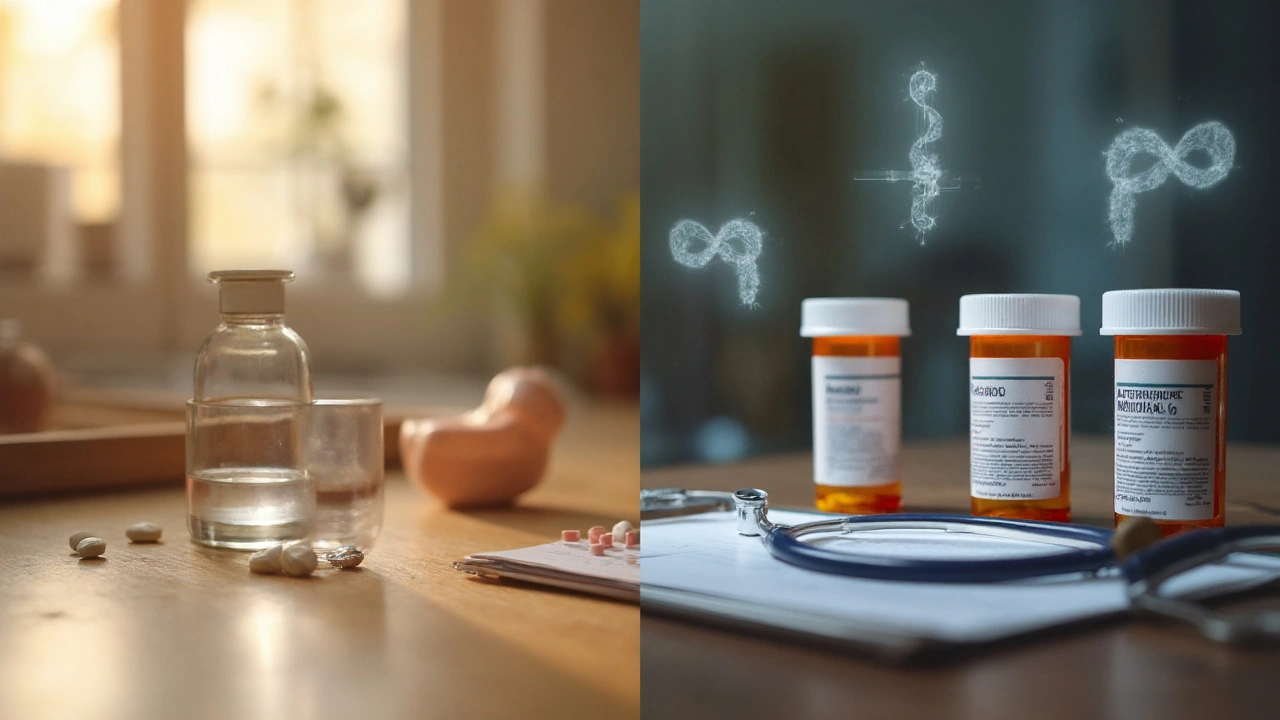Alcohol Dependence Treatment: Real‑World Help You Can Start Today
If you or someone you love is stuck in a drinking pattern that feels out of control, the good news is that help exists and it’s easier to access than you might think. You don’t need to wait for a miracle; you just need a plan that fits your life and a few solid resources to guide you through each step.
What Works: Proven Treatment Paths
Most successful programs start with a medical detox. This is a short‑term, supervised stay where doctors make sure your body can safely clear alcohol. Detox alone isn’t a cure, but it clears the way for longer‑term solutions.
After detox, behavioral therapies take the lead. Cognitive‑behavioral therapy (CBT) helps you spot cravings and replace drinking triggers with healthier habits. Motivational interviewing is another vibe‑friendly approach that nudges you toward change without feeling judged.
Medication can give you a boost, too. Drugs like naltrexone reduce the pleasure you get from alcohol, while acamprosate eases post‑withdrawal cravings. Talk to a doctor about side‑effects and whether these options fit your health profile.
Community support rounds out the mix. Groups such as Alcoholics Anonymous or SMART Recovery provide a judgment‑free space where you can share wins and setbacks. Regular attendance builds accountability and reminds you that you’re not walking this road alone.
How to Choose the Right Plan for You
Start by asking yourself three questions: Do I need medical supervision right now? Am I comfortable talking about my drinking in a group? Which lifestyle changes feel doable?
If you’ve never detoxed before or have a history of seizures, a short inpatient stay is safest. If you’re stable and can handle an outpatient schedule, many clinics offer weekly visits that combine counseling and medication management.
Consider your schedule and budget. Some insurers cover medication‑assisted treatment and therapy, but you may need to verify. Telehealth options have exploded, letting you connect with therapists from home, which can cut travel time and costs.
Finally, set tiny, measurable goals. Instead of “stop drinking,” try “reduce to two drinks on weekends” for the first two weeks, then adjust. Celebrate each small win—whether it’s a sober day or a productive morning after a night out.
Remember, relapse isn’t failure; it’s a learning moment. Keep notes on what triggered the slip, reach out to a sponsor or therapist, and tweak your plan. With the right mix of medical care, therapy, medication, and community, you can turn the tide on alcohol dependence and build a healthier, clearer future.
- Sep, 24 2025

A clear, side‑by‑side look at Acamprol and its main alternatives for alcohol‑dependence, covering how they work, dosing, side effects, cost and when to choose each.
- Read More
